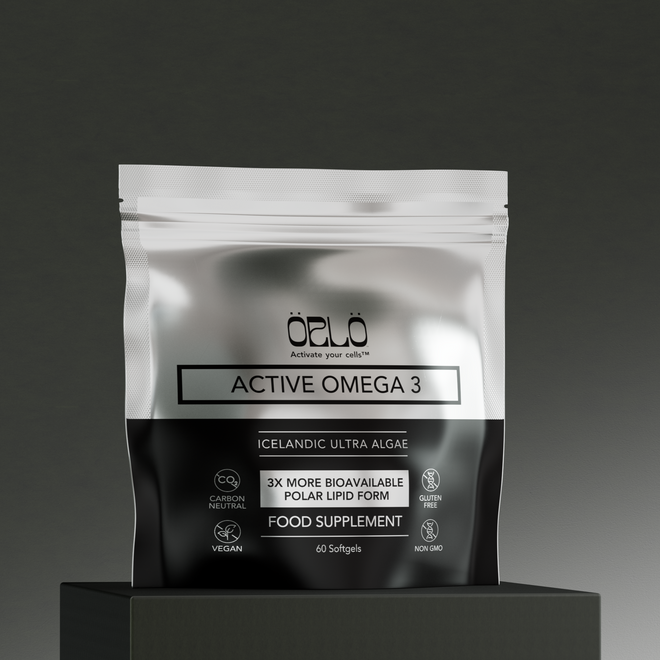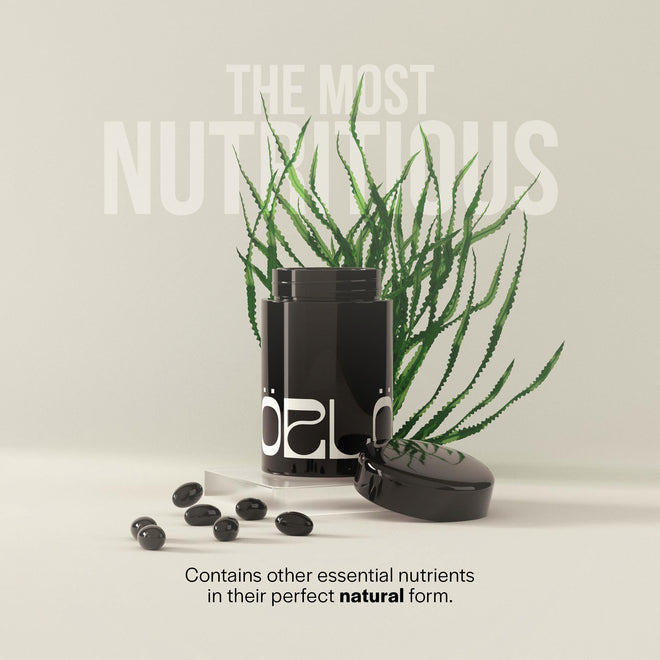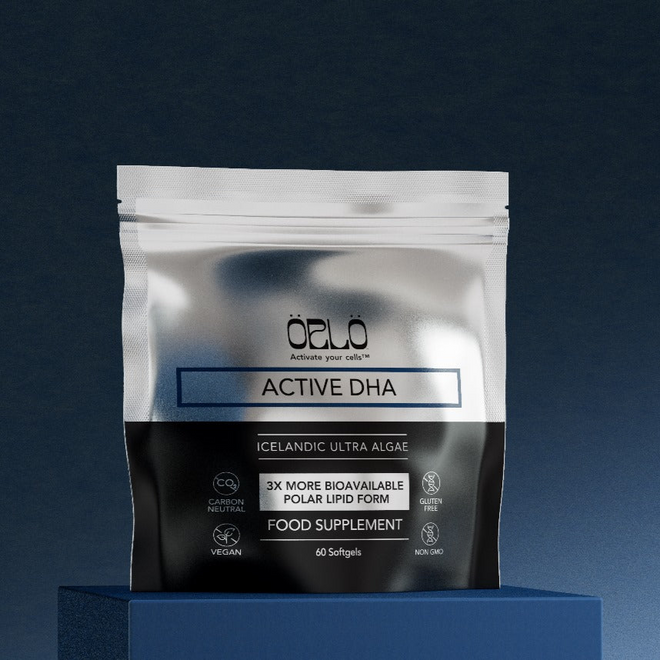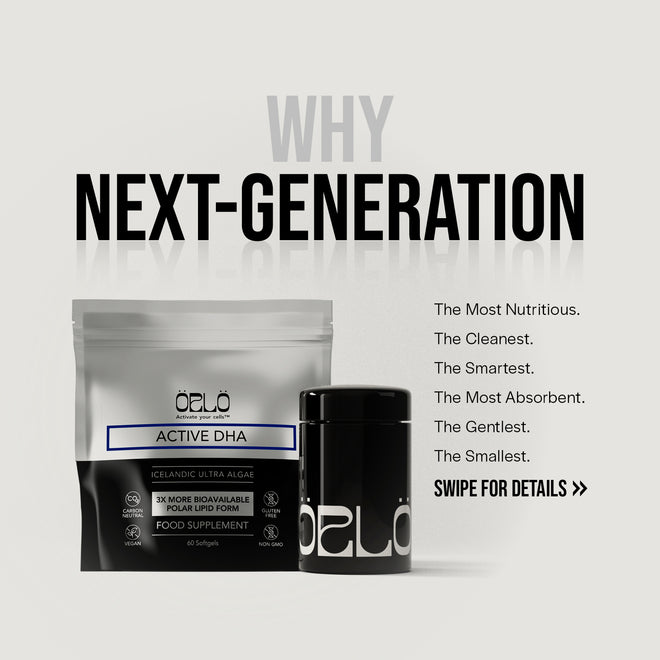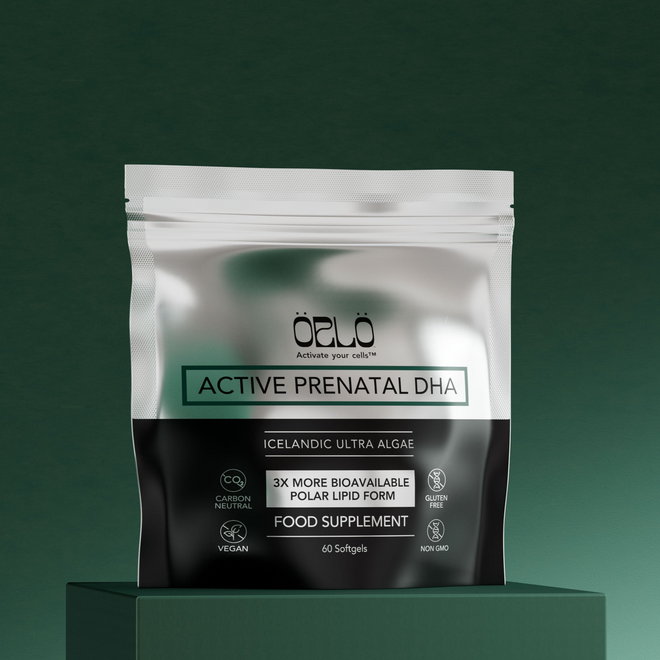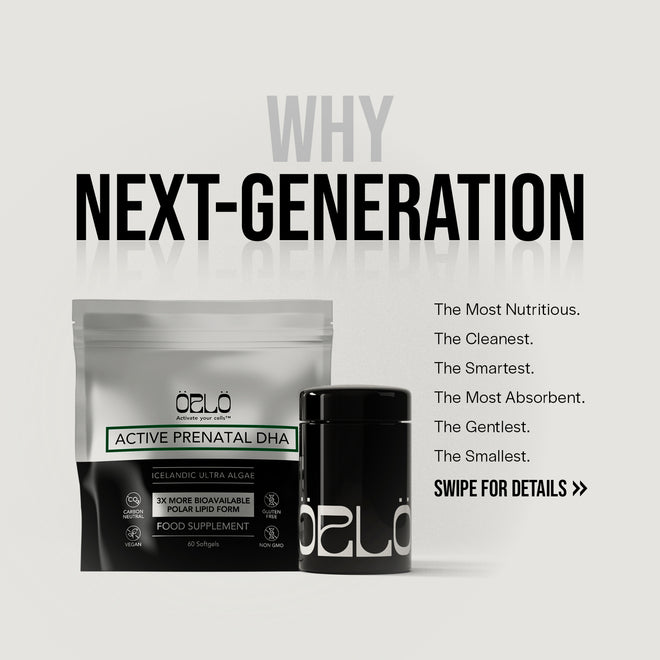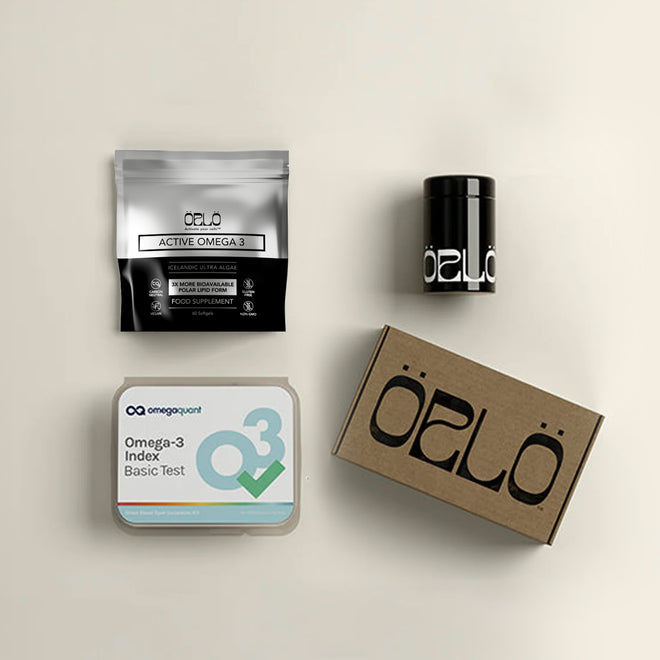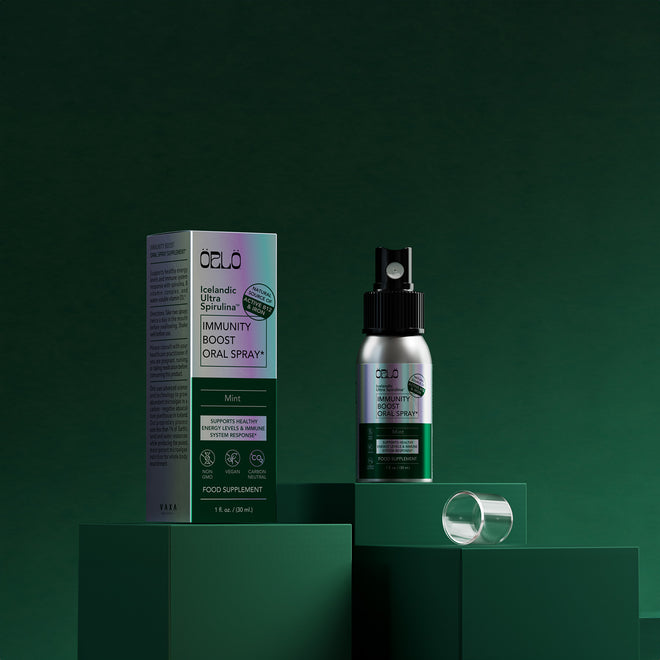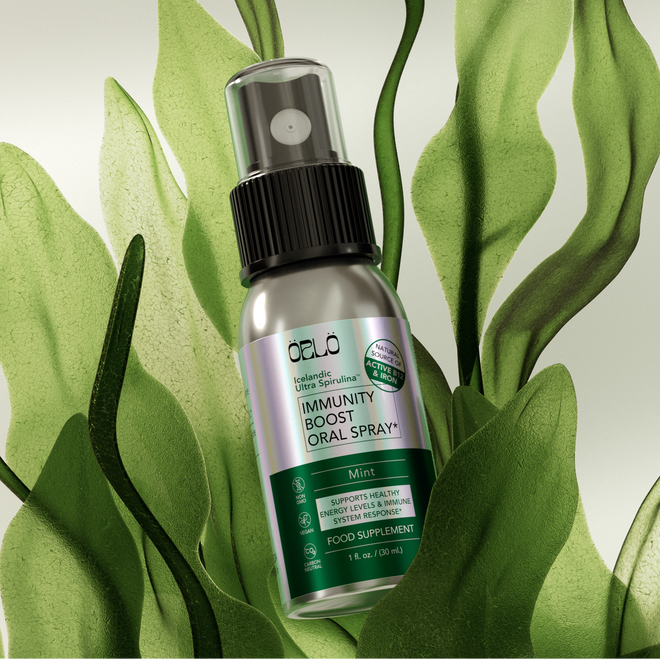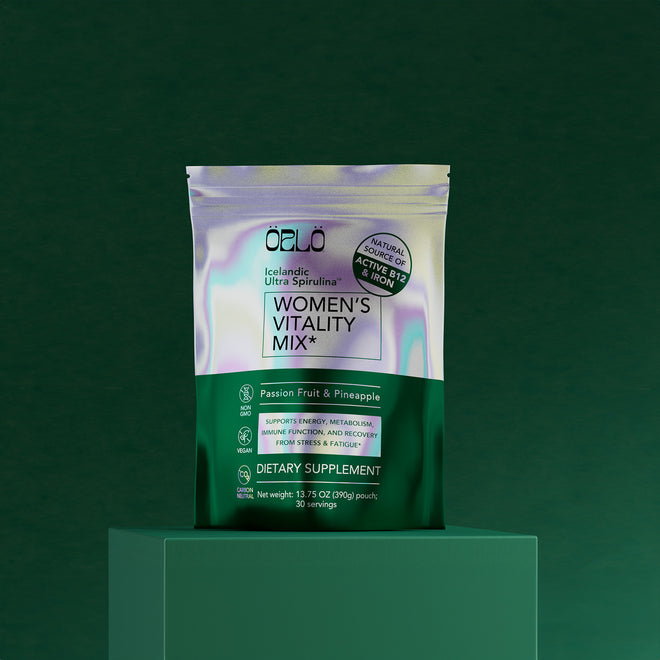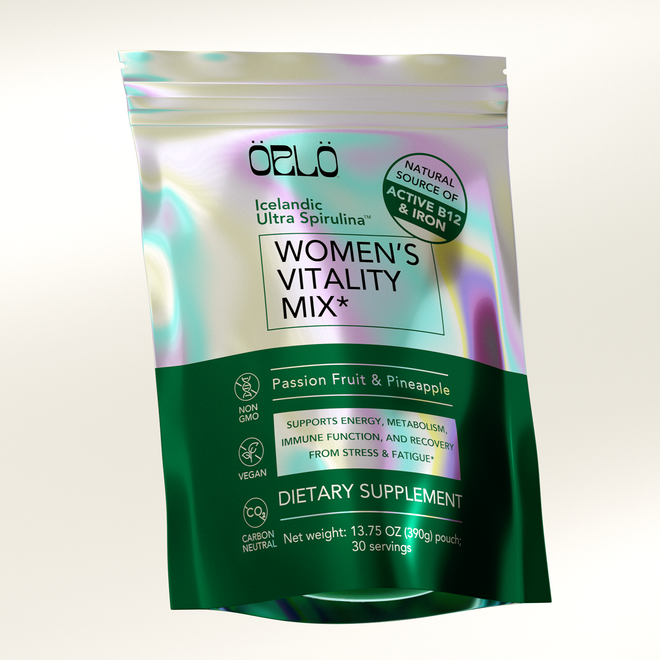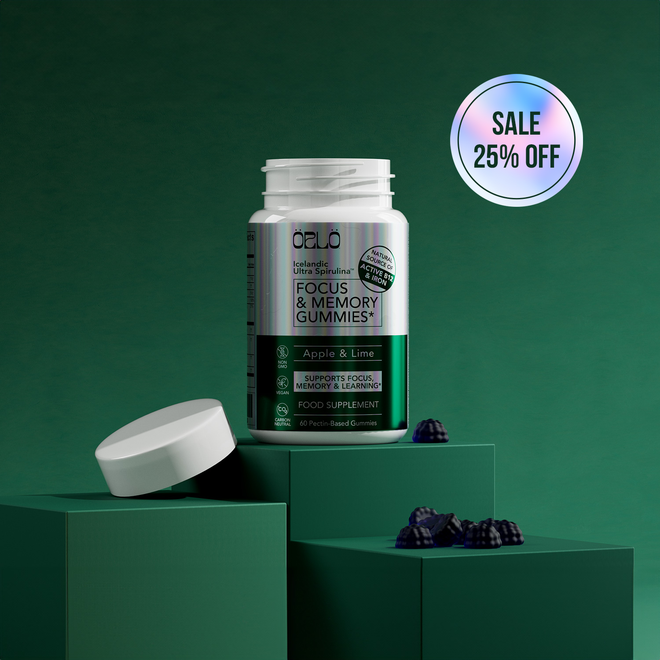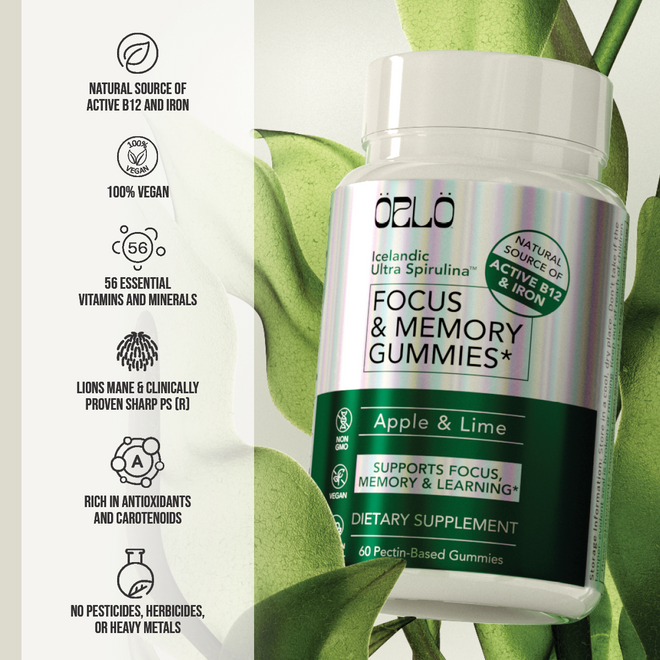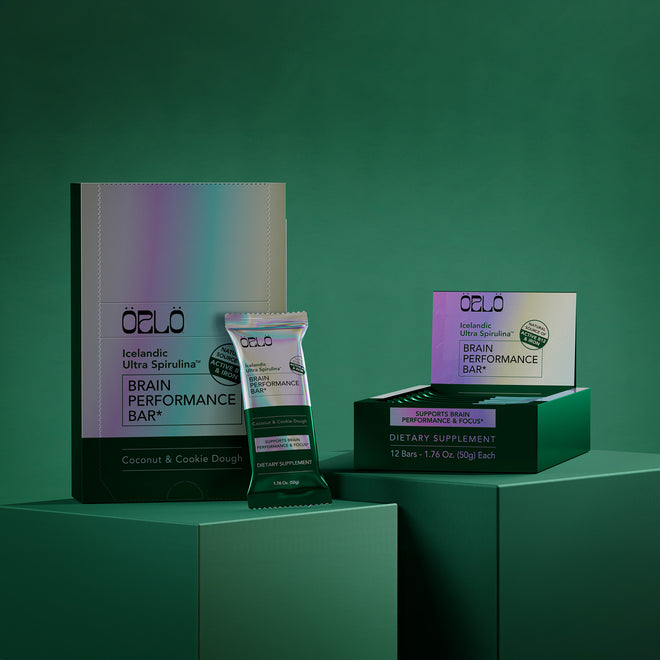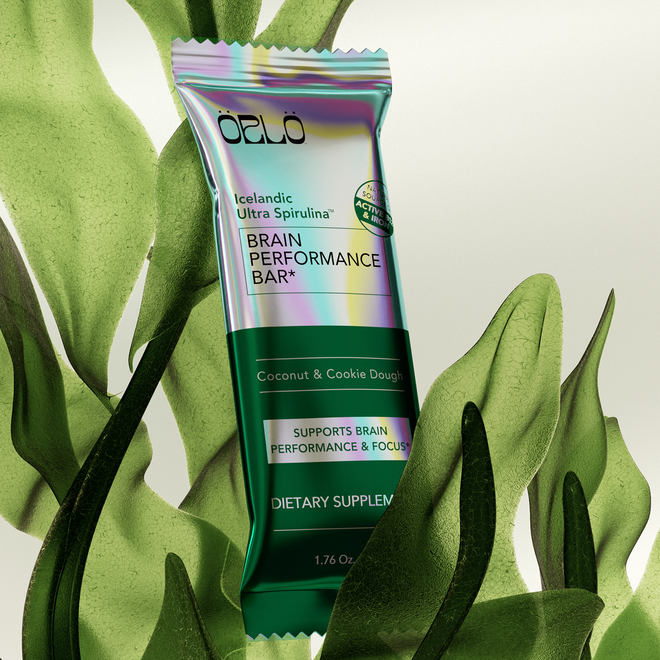25% Off - use code: HOLIDAYS
Responsible Sourcing: Introducing A Plant-Based Coffee Alternative With Ben LeVine, Clinical Herbalist
Watch the episode here
When it comes to sustainability, so many industries still have a long way to go. Clinical Herbalist Ben LeVine has always felt a profound connection with nature. So much so that he set out to disrupt the system through his company, Rasa, where he stewards the development of an ethically sourced herbal coffee alternative that's helped over 100,000 people connect with mother nature, live their values, and discover plant-powered energy. In this episode, he joins Corinna Bellizzi to let us in on the wonderful work they are doing, especially when it comes to responsible sourcing. Ben shares the problems currently faced by the herbal world and how they are trying to achieve sustainability while keeping people healthy through adaptogenic coffee alternatives with herbs. Don’t miss out on more great insights as Ben ultimately shows you that businesses can also become more pro planet.
Key takeaways from this episode:
- The problems faced by the herbal world
- Achieving sustainability while supporting local economies
- The idea behind making an adaptogenic coffee alternative
- Benefits of adaptogens to our health
- How to make businesses more pro planet
Guest Social Links:
- LinkedIn: https://www.linkedin.com/in/ben-levine-b1313810/
- Rasa Website: https://wearerasa.com
- Rasa Instagram: https://www.instagram.com/wearerasa/
- Rasa Facebook: https://www.facebook.com/wearerasa/
- Rasa Pinterest: https://www.pinterest.com/wearerasa/_shop/
---
Responsible Sourcing: Introducing A Plant-Based Coffee Alternative With Ben LeVine, Clinical Herbalist
I'm going to be joined by a clinical herbalist and man on a mission, Ben LeVine. He has always felt a profound connection with nature. A passion that led him to earn his Master of Science in Clinical Herbalism and accept the position as Senior Buyer of Botanicals for that tea giant, Celestial Seasonings.
Unfortunately, the more he learned about the inner workings of the commercial urban industry, the more jaded he became. He set out to disrupt the system. He serves as a Co-Founder of Rasa, stewarding the development of an ethically sourced herbal coffee alternative that's helped over 100,000 people connect with mother nature, live their values, and discover plant-powered energy.
Ben, welcome to the show.
Thanks for having me on, Corinna.
I'm thrilled to have you here. Reading your bio gave me a thing or two to think about. We have some things in common. I want to give you a bit of context as we get started, so we can dig deep into the issues that surround sustainability, resources, and a greater context. I've also felt a profound connection with nature throughout my life. I also started out in this natural products industry working in the world of herbs and herbal extracts. I started with a traditional Chinese herbal extract manufacturer, Draco Natural Products, and then I worked in collaboration with big tea companies like Traditional Medicinals to help them build products that would help people's health.
I learned to formulate with more than 100 herbs and use that whole TCM to support people's health. I learned a lot along the way about how herbs are farmed and some cases wildcrafted, and others under less-than-ideal conditions. In the midst of this, I also became disillusioned because we saw serious problems erupting like doping for herbal extract products, problems of drug companies encroaching into the business, and trying to regulate us out of having access to certain herbs.
Ultimately, I made the choice to pivot to the world of Omega-3 from fish. After several years of building Nordic Naturals to become the juggernaut, they are now in Omega-3s. I left them back in 2011 and what I would consider is doing my own penance over the last few years, especially as I focus on algae as a source of Omega-3s because we don't have to go to the fish.
Our marine ecosystems are in an incredible challenge now. With algae, we can get all that stuff without negatively impacting the environment, produce oxygen as a byproduct, and sequester carbon along the way. We have a lot to talk about. Let's start by talking about those sorts of problems that are facing the herbal world. Why did you become disillusioned? What was your journey there? Why did you shift your focus there for?
There are many reasons, but at the base layer as an herbalist, when you're wildcrafting in the rocky mountains here in Colorado or wherever you live, there's an encountering of the wild. There's a courtship of plants, honoring of plants, and you build a relationship with these plants. You contrast that to the urban industry as a whole, and you see almost none of that.
There's a lot of shifting herbs into commodities. I was buying 10 million pounds of botanicals a year and I also had this one stark contrast was this yellow dock plant outside of Celestial Seasonings on a bike path that I would go and sit with maybe 2 or 3 times a week on my lunch break, and build a relationship with that plan. I was learning everything about the yellow dock, its traditional uses, the chemistry behind how it works, and building a relationship. I would go back inside and buy massive amounts of herbs that I had zero relationships with that didn't know that much about. What are the sustainability issues? How are the farmers treated?
A big part of my drive is to build that relationship and understand all the dynamics because when you start looking, you realize anytime an herb gets wildcrafted, there are going to be issues. We see that in the adaptogen herbs space or adaptogenic coffee alternative. We buy a lot of wild plants from China and Russia, and there are serious problems there. On the flip side, if you look at farming, are we moving more towards regenerative building healthier soils, or are we copying a monocrop way of farming that is no better than corn?

One thing you allude to as you commence the story is the challenge that we all face in building and marketing products that consumers will use and that has to do with the fact that the price squeeze tends to be on the bottom. We're working to build things that are affordable for people on a monthly, weekly, and daily basis.
When you're commoditizing something that's a natural resource, you're paying less than the worth or the value of that actual material and the cost of it is human. The person that's harvesting is getting paid an unsustainable wage and isn't able to afford healthcare or take care of their family as well, and things along those lines, or living in conditions that are less than ideal. That's very common in the herbal world.
It's something that Chris Kilham, the Medicine Hunter talks a lot about when he's out there in the world. I've interviewed him on my other show, Care More Be Better, and he'll come on here to talk about that very thing too. He did a tour with KSM, which is an ingredient supplier from India to the ashwagandha farms in India and showcased the beauty of the herbs and also the work that KSM is doing to provide people with living wages and some of the other things that they're doing to support the health of the populous there as well.
There are good responsible companies out there, but sometimes you have to do a lot of leg work to learn about it. How are you tackling that very human issue with Rasa so that you both have a sustainable crop that can continue with your product, but also that the human element is protected and cared for?
It's funny you mentioned Chris because I was in India as well on ashwagandha fields. I saw some of the photos he was posting and I was like, "We are in different parts of India, but very similar." The first thing that I want to do is get my boots on the ground because suppliers will tell you a lot of things, but you don't know what's going on there until you visit.
You start to build a relationship and you go back and they start to see like, "These people are invested. They're curious. They want to help us build things and also, we're holding each other accountable." The ashwagandha fields I was in, for instance, was cool to see. It's the perfect crop. it's a booming herb right now and adaptogen. It's in almost all of our blends.
The crop couldn't be better for farmers. It's not only drought resistant, but it's drought loving. The less rainwater it gets, the better. The higher the withanolide content, the more active constituents. You can broadcast seeds. It doesn't need any fertilizer, water, or pest pressure, and let those plants grow for six months and then harvest them. It's a quick turnaround.
I was looking at the crops, farms, and plants, and then talking with the farmer groups and understanding how they're supporting the laborers and our manufacturers supporting the farmer groups. There are a lot of different certifications out there at Fair for Life. That's one that you see a lot in the herb industry and that Rasa working towards because it's not pure commodities like Fairtrade often is. Fairtrade is often coffee, bananas, or tea. Fair for Life is a little more integrative and able to work with a lot of the smaller crops like herbs.
I've seen chocolate companies that are working to best the practices of Fairtrade and so they don't bother with the certification because they feel like it's not stringent enough. They're doing so much more to support the local economies of the people that they serve in Brazil or the farmers that they're working with there or in Africa too.
Anytime an herb gets wildcrafted, there are going to be issues.
I'm curious to see if you feel like these third-party certifiers are doing what you think needs to be done. Are they reaching the consumer in a way that will help the consumer care more? What effort are you seeing behind it in that stretch? Also, they were in process of developing a regenerative agriculture certifying body, but there's nothing set yet. I'd love to hear your perspective.
I'm torn on certifications. The Fairtrade certifications in many ways feel like a shallow intermediary that replaces relationships. If you can do direct trade and build real relationships with smallholders, that's usually much better. Fairtrade got co-opted a bit when they expanded it to plantations. Originally, Fairtrade was a coffee cooperative. There was a way to give cooperatives access to the broader market. You have a co-op made of a bunch of two-acre farmers that on their own could not compete with these massive coffee plantations.
Fairtrade gave them access, but then the bigger players in the coffee market, like Starbucks, etc. wanted access to Fairtrade because consumers were starting to see the "Fairtrade logo. That makes me feel better about my purchase." The Fairtrade USA opened it up to plantations which destroyed the whole co-op model in a lot of ways. It made the label much broader. You get into power dynamics, for instance, like you have your Fairtrade Premium and coalition of stakeholders. Some farmers, owners, and management, but the power dynamic are so intense that often decisions get made that benefit management, not laborers. I saw this at a previous job in the tea industry.
We get schooled to look for a specific seal and we think that seal is going to embody something that relates to quality or guarantee in some way that the conditions were such say, "You'd be proud to buy that product," but speaking to your boots on the ground approach, what I've seen time and again, too, is that even in the organic food space, it makes sense to get boots on the ground and see what's happening. How is the product being farmed? Are they a no-till farming operation versus a tilling farming operation?
We could talk for a long time about that particular subject in regenerative agriculture, but it's something that Paul Hawken and his work also mentioned that it's important to get feet on the street and have a connection to food. Ensure that this is more relationship-driven too because when we do that, we tend to improve quality. We also tend to do things like pay a fair wage.
I have an example in the coffee space since you mentioned coffee that I'll mention for people here and that is Port of Mokha. They're led by Mokhtar Alkhanshali and he is of Yemenis origin. He went to Yemen to bring their coffee here. For those that don't know, you can get a pound of coffee for a couple of bucks. That's unprocessed and not taken care of.
He is paying something triple to the earners in the area that he's working with directly and bringing some of arguably the first coffee that ever came from any spot in the world was in Yemen or Egypt. He's going to the space where coffee originated, working with local people, and making sure that they're able to thrive in their environment. He's not pillaging the lowest ranks of society and besting and so doing fair trade practices.
It's a very interesting model. He has to charge a lot for his coffee. A lot more than most people would be comfortable paying for their daily regimen. I wonder as we talk and think about things that might be superfluous, do you need coffee or tea to thrive? Maybe not, but you enjoy it. It gives you other benefits. Let's dig into that and what specifically you're working to do with Rasa by offering something that is different, a coffee alternative, so to speak. What does that mean to you? How you're formulating these products so that consumers can enjoy something that is health-promoting and also responsible at the social level?
The idea behind making an adaptogenic coffee alternative came from the Founder, Lopa, who had her first kid. She was tired all the time. She tried coffee and it doesn't work for her. She had a moms' group that coffee wasn't working for them either. You dig yourself into a hole. She was looking around at coffee alternatives in the market and didn't find anything that was functional and thought like, " I'll make my own."

We add a lot of adaptogens in because coffee is a daily ritual for a vast majority of Americans. When you make something in capsule form, sometimes, you forget to take it unless you get into a routine, but you never forget to drink your cup of coffee in the morning. It's like this entrained ritual. There are a lot of people looking to ease off coffee for health reasons like anxiety, stress, and a lack of a good night of sleep.
We want to offer these stress-busting adaptogens in place of coffee or as your 2nd or 3rd cup. A lot of people love coffee and it does provide a lot of antioxidants. It's great if we also get the 2nd or 3rd cup. The real angle we're going after with Rasa is stress. Stress is this massive chronic foundational issue in our society. When you look at a lot of the chronic diseases out there and issues we have, you can link almost all of them back to stress.
Lack of sleep and stress are also tied closely together. With that, then suddenly you also have a cascade of health issues that can erupt from that. I 100% agree with you. I'm also a big fan of hot liquids. I almost always have a coffee or tea as I'm recording shows or my daily work at my computer. I find that it's addictive for me more than water is as an example.
I have a tea that I make from astragalus and lychee berry. I boil water and put those in it. I let them float around in it for a while and drink it, and then chew on the goji berries and stuff like that. I'm a little bit of a nerd when it comes to herbs. This is a relic of my early days working in this industry and learning about health and nutrition.
I do find when I miss that or I don't take those adaptogens like the Rhodiolas, the Siberian ginseng, astragalus, or ashwagandha. Those are incredible adaptogenic that my stress levels go up. I don't sleep as well. It's a simple fix. I wonder what you're most excited about in this world of adaptogens from a research perspective. What's getting your clinical herbalist juices flowing?
I've been on a mission to understand how adaptogens work as you do Google around so many articles about adaptogens. They're trending right now. Most of the time, they say, "Adaptogens help you adapt to stress," but why and how? That's what I've been fascinated by it. How are these herbs working in our bodies that have such profound effects? Ashwagandha has been shown to lower cortisol levels and profoundly help with sleep and also performance and endurance.
It increases muscle mass. That's incredible. That was a surprise for me. Tennis stars are now adding ashwagandha to their regimens because it has been shown to increase your lean muscle mass. Lean muscle mass is also bone protective, so it's anti-aging. If you take an adaptogen like that on a routine basis, then you're going to see health benefits that cascade from stress reduction to better muscle mass down the line. It will improve your body's ability to hydrate. There are so many things that adaptogens do that my mind is blown whenever I look at the research. I wanted to know what your mind-blown moment was in that space.
There's been so many, but one is that we have these plants adaptogens that are cross-cultures. You see them in Ayurveda in India as the rasayanas or the rejuvenative tonics. You see them in traditional Chinese medicine often as the chi tonics. It turns out that these plants share chemistry very often. Most adaptogens have what's called triterpenoid saponins. The mind-blowing moment was when I read some research that these look almost identical to cortisol.
These plants have compounds that look very similar to cortisol but don't bind to those receptors nearly as strongly. They act as partial agonists. They're able to modulate those receptors in a way that helps us be in balance. If we have too much cortisol for chronically-elevated stress, adaptogens can help lower that cortisol back into a healthy range. On the flip side, if we're exhausted and burnt out, adaptogens can come in because they look like cortisol in a weaker way, but if you are low on cortisol that can give you that boost to build back better habits.
If you can do direct trade and build real relationships with smallholders, that's usually much better.
I traveled to Colorado where you're based on a fairly routine basis because I have family there, living at 10,000 feet elevation. I'm in Santa Cruz, California, which is at sea level. I used to have a little issue with getting low-grade headaches and dehydration because it's much less moist there, in general. I have to drink more water, but basically low-grade altitude sickness.
My dad gets it much worse, but I tend to be okay. Granted I'll get winded hiking those hills because we're talking a 10,000-foot elevation difference from where I live to where we go up above Woodland Park. They're in Divide, which is another couple thousand elevations above Woodland Park. Woodland Park is known as The City Above the Clouds. It's pretty high up there.
I started to take adaptogenic herbs with me. Now, I keep some at my dad's cabin. I noticed that I never get a headache anymore when I go. It doesn't happen. I also don't feel as parched. It relates to your muscles and this is speculation because if it is protecting your muscles in some way or ability to build muscles, then you understand that 60% of your muscle weight is water, then you're more effectively carrying water in your muscles. I can't prove it, but it's what I suspect is happening. That's the wonder or the mystery behind how some of these herbs work.
This also gets to the heart of why plant-based nutrition and having a varied diet are important. Look at some of these herbs as a gift from the Gods, so to speak, because they're here on this mortal coil with us and we evolved by consuming them in some way. All sorts of different plants treat ailments and have passed on this generational knowledge from one group of people to the next. That information has traveled across countries and across worlds, it's amazing the body of knowledge that we have, and yet so much that we still don't know.
I have a couple of things that popped into my head while you were talking. The altitude is true and there is some research around Rhodiola potentially helping get more oxygen to the brain. Rhodiola, eleuthero, and cordyceps, these three adaptogens are well-known for helping folks adjust at high altitudes. You look at where they grow and they grow extremely high.
I was in China a few years ago up in Northeast China, almost to Russia in the Changbaishan, the ever-white mountains that have snow year-round pretty much. That's where Rhodiola and eleuthero grow. They're super high up and they're getting a lot of the pressures from living in such an intense place. It's very cold. You have a lot more exposure to radiation. You have a lot less oxygen.
We can take these compounds that these plants are building for themselves. They're like, "We don't have enough oxygen. We're going to have compounds that help with that and we can co-opt these compounds for ourselves," which is fascinating. When you look at adaptogens, they often live in extreme places, either super high up or like ashwagandha super low, hot, and with no water. It's a different opposite kind of extreme.
Thankfully there are vegetarian cordyceps available now.
Almost no one should be using wild cordyceps. The lab-grown fruiting bodies are awesome.

As they're effective. They grow it on rice now.
The second thought I had when you were talking about our evolutionary exposure to plants is this great book about nature deficit disorder. He's talking a lot about we don't get enough nature. We're not out in nature enough, but the same with we also don't eat enough nature. Our phytochemical diversity in our diet is a very small fraction of what it used to be. We eat 100 different plants a month and now eat 10.
You'll get your mixed greens and green beans. For us, we do a lot of green beans and brussels sprouts because I'm sensitive to broccoli. I can't have broccoli or broccoli cultivar. We go to other cruciferous and get the things that we can get our kids to eat. They like green beans and learned to like brussels sprouts, which is probably pretty good for kids.
Generally speaking, we're used to getting the same basic foods and then you develop your diet and habits around them. We get back to this whole concept of habits and what habits you have. One of the things I encourage people to do that I'm working to do myself is do more of my shopping at farmers' markets because it's both locally grown and supports local economies. It's creating more of that circular economy and its packaging is reduced because I'm working to get plastics out of the household as much as possible. I can often get berries that way that isn't in a plastic container. I can often get different mushrooms than I might see at the grocery store and things along those lines.
I'm getting a different or broader variety of produce that is available in my local community versus what's available at Safeway, Raley's, Whole Foods Market, or the natural health food store, even. It's something that we need to integrate with and get comfortable with. We try different foods. Expand your repertoire of the foods we eat.
In an earlier episode, we connected with Dr. William Li, who wrote a book called Eat to Beat Disease. I look at that book as a great arsenal to get you thinking about the foods that you might like to enjoy, but also those that attack different systems within your body so that you can create your best health. You'll see a ton of herbs listed in there too.
Things like ginger that you might not consider that you can buy at almost any grocery store and grate and then cook with or turmeric even which you often can also buy at a grocery store and add to your culinary delights. Ultimately, it creates a better tasting palette of food and also one that's more varied so that your health is of its best possible existence, so you can live and enjoy the things that you love.
I have a question for you that relates to coffee and water use versus herbs because you're looking to bring to the market smattering of herbs as a coffee replacement to change our habits. One of the things that we should and could continue to be concerned with is things like how we're using water, not necessarily in the beverage itself, but in the growing of all these herbs versus coffee. Do you know anything about what it takes to grow coffee on a personal basis versus the herbs that you're formulating with? How does it compare for land and water use?
It's one that I want to do way more research on. I do know that coffee is on the list of foods that impacts our climate. Beef is number 1 and coffee is number 6. That's because there is a lot of monocrop sun-grown coffee. There are rows of coffee. They tear down the Amazon, Nicaragua, or wherever. They raise the forest, they monocrop coffee, full sun, a lot of pesticides, and fertilizer. That's horrible.
We're not out in nature enough and also don't eat enough nature.
There are a lot of folks that are doing a lot more shade-grown coffee and intercropping. Doselva, a company in Nicaragua, are growing turmeric and ginger, and they're mixing it in with the coffee, which is also agroforested ideally, so there's natural shade cover. There are better ways to do it, but the bad ways are still prevalent because it's cheaper, quicker, and more short-term.
In the herb industry, the herbs we work with, we're trying to understand how can we be on the best side of the spectrum. I'll talk about India again. One of the things I was doing there was looking at all of the different programs they have and seeing where we fit in, and where we can support them. It was mind-blowing and awesome to see.
For instance, they have this traditional compost tea called Jeevamrutha which means nectar of life, and it's the indigenous cow dung and urine in a barrel mixed with lentil flour, a handful of soil, and jaggery or raw sugar. You add a bunch of water to that and it ferments and becomes this microbe-rich brew that you then give to your soil that drastically improves the soil. We saw a lot of rainwater catchment systems, big pits, buns, or ditches because one of the big issues in Southern India is the topsoil is gone and the monsoons never make it to the aquifer. It rains so much in a little amount of time and it all washes away.
When you get your water all at once, it's like a desert condition in that way.
You have to figure out ways to capture that water and let it sink into the aquifer. They're doing studies on the aquifer level and it's raising after the last several years of doing these practices. We try to figure out, “These farmers are doing incredible work. How do we grow that? How do we scale it?"
How do we amplify it? How do we make our business more pro planet?
Seeing one model farmer in a village who's more regenerative, intercropping, and green manuring and seeing how his soil has improved so much means his yield and profit improved. You have all these other farmers in the village coming around and saying, "I noticed your yield and now your profit are all better than mine. Can you show me what you're doing?" You start seeing other rainwater catchment pits or ponds popping up. These practices slowly start to spread.
That story is one that we need to hear more of. On Netflix, you can watch the film called Kiss the Ground. It's available in a number of other places as well, where they show stories of that happening even here in the United States, where farmers have been able to handle drought by not just focusing on crop rotation, but no-tillage and shifting to a more regenerative growing process, and then working to share those stories with their local communities. You can see the farm that is growing regeneratively has healthy crops and then literally across the aisle, there's a dust bin because they weren't able to successfully grow their crops due to water issues that they encountered.
These are the important stories that we need to learn more about, lean into, and discover. I appreciate what you're doing with Rasa. It is working to get the feet on the ground to have those relationships and build a better future. Kudos to you. I've enjoyed this discussion. I would like to ask you at this point if there's a particular thought that you'd like to leave our readers with? If you have a question that you feel wasn't asked that you wish had been, you could ask and answer that as well.

We, as consumers, often have a lot of herbs in our life, whether it's a teabag or coffee, which is also an herb or it's a tincture during allergy season or a coffee alternative. One thing I always encourage folks to know so much about the food industry and how the system is broken. It's overwhelming and depressing without one small action step. I always say, "Pick one plant, whether you like chamomile in the evening or you have Rhodiola at your dad's cabin in Colorado."
Pick one herb and try and learn everything you can about it. Ask all the companies all the questions, and see how they respond, which will give you a good idea of the integrity of that company. See what's available online, look into the research, and understand that if I'm going to continue to buy this, should I shift my buying habits? Should I try and buy local? Should I try and buy it from this country? Should I buy it from this farmer cooperative? Having one little shift in one plant that you consume will provide that model of the one villager that we can then continue to expand upon. Doing it once is huge.
That speaks to knowing your source and developing a relationship with brands that you can trust. and It's important to leave a message for everyone here. Going to Amazon.com and buying whatever is cheapest in a category isn't necessarily going to support these regenerative systems. In fact, it might be the direct opposite of that.
If we consider as consumers, what our footprints are, it's helpful to think these things through and to know your source, especially when it comes to things that are additive like tea, coffee, and supplements, things that you don't require to live, so to speak. It's very important to think about the source and where our food, the things that we consume, and put into our bodies come from. That's a beautiful thought and thank you so much, Ben.
I do have a discount code for anyone who wants to give us a try. WeAreRasa.com or @WeAreRasa in all the socials and NUTRITION15 for 15% off.
Thank you so much for that, Ben. Thank you for joining me in this discussion.
Thanks for having me, Corinna.
---
Thank you for joining us. To learn more about Ben LeVine and Rasa visit WeAreRasa.com. You can follow them in social spaces at @WeAreRasa. If you enjoyed our discussion, be sure to subscribe to the show, so you are alerted when new episodes drop. Here's to your health.
Important Links
- Celestial Seasonings
- Rasa
- Draco Natural Products
- Traditional Medicinals
- Nordic Naturals
- Chris Kilham - Care More Be Better Past Episode - Chris Kilham on Building Sustainable Communities by Learning from Indigenous People
- Care More Be Better
- Fair for Life
- Fairtrade
- Port of Mokha
- Lopa van der Mersch - LinkedIn
- Eat to Beat Disease
- Doselva
- Amazon.com
- @WeAreRasa - Instagram
- @WeAreRasa - Facebook
- https://www.Pinterest.com/WeAreRasa/_shop/
About Ben LeVine
 Ben has always felt a profound connection with nature — a passion that lead him to earn his MSc in Clinical Herbalism and accept a position as Senior Buyer of Botanicals for tea juggernaut Celestial Seasonings.
Ben has always felt a profound connection with nature — a passion that lead him to earn his MSc in Clinical Herbalism and accept a position as Senior Buyer of Botanicals for tea juggernaut Celestial Seasonings.
Unfortunately, the more he learned about the inner workings of the commercial herb industry, the more jaded he became. He watched as the world’s precious botanical resources were ravaged by uncontrolled harvesting — and quickly realized he was part of the problem.
So Ben set out to disrupt the system. Today, he serves as the Co-Founder of Rasa, stewarding the development of an ethically sourced herbal coffee alternative that's helped over 100K people reconnect with mother nature, live their values, and discover plant-powered energy.
